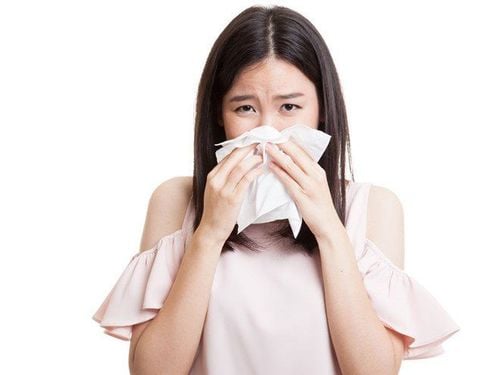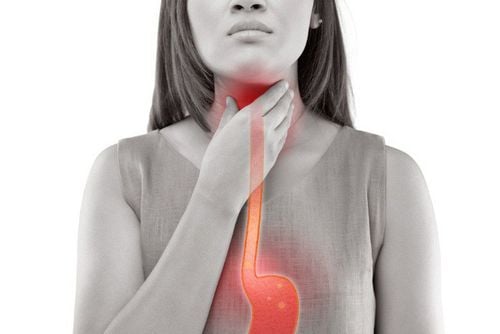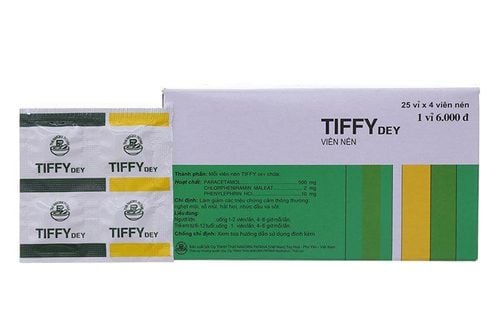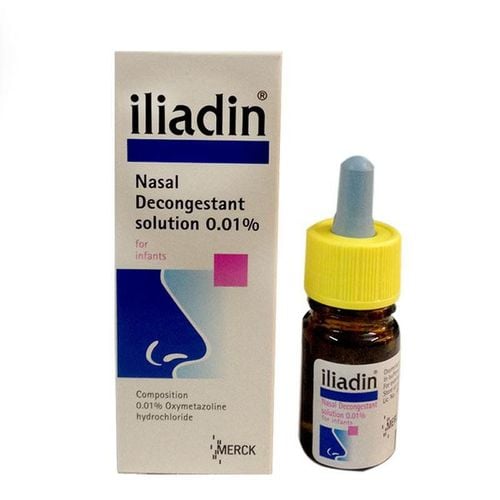Which food to avoid when you have allergic rhinitis is a common question among patients. Although allergic rhinitis is not life-threatening, it can be quite uncomfortable. The condition is not only affected by the weather, but certain foods consumed by patients can also increase allergic reactions. So, what should people with allergic rhinitis eat and what should they avoid?
This article is written under the professional guidance of specialists in Allergy - Clinical immunology at Vinmec Times City International General Hospital.
1. What is allergic rhinitis?
Before exploring what to avoid when you have allergic rhinitis, let's briefly review the condition. In healthy individuals, the immune system protects the body from harmful agents, such as bacteria or viruses.
However, in people with allergic rhinitis, the immune system overreacts to harmless agents. The most common triggers include pollen, fur, or dust. This causes inflammation and irritation, leading to an allergic reaction in the mucous membranes of the nose, sinuses, and eyes.
Allergic rhinitis is a condition in which the nose becomes swollen and inflamed due to allergies to internal and external factors such as dust, lint, humidity, temperature, air pressure, and weather. The disease is common in people aged 21-30 and affects learning, working, and hinders sports and recreational activities.
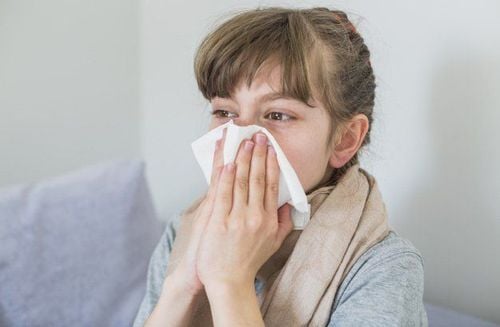
2. The impact of diet on allergic rhinitis
In people with allergic rhinitis, food is also a very common trigger. Therefore, adjusting your diet can help improve this condition.
In the treatment of allergic rhinitis, combining medication and a scientific diet will help to overcome the disease and restore health faster. Moreover, some foods can also help prevent the disease from recurring.
So, what is the best diet for people with allergic rhinitis?
3. Foods to avoid for people with allergic rhinitis
To prevent allergic rhinitis from recurring or worsening, patients should avoid certain foods as follows:
3.1 Fatty, cold, and fishy foods
Patients with allergic rhinitis should avoid cold or allergenic foods such as shrimp, crab, snails, squid, and sea cucumber. These foods can worsen symptoms.
Fatty meat can also cause throat discomfort in patients. Chicken has a wind-cool nature, which can also aggravate allergic symptoms.
Moreover, patients should also avoid drinking cold water or eating ice cream. Cold foods and drinks can trigger sneezing, bronchial spasms, coughing, and increased respiratory mucus production.
3.2 Spicy and hot foods
Spicy seasonings like chili or pepper can cause patients to continuously experience itchy nose and sneezing.
In addition, spicy and hot foods can easily cause stomach acid to reflux into the throat, adversely affecting the ears, nose, and throat. Alcoholic beverages can also dehydrate the body, thicken mucus in the nose, and cause swelling of the nasal and sinus membranes, worsening the condition. Therefore, patients with allergic rhinitis should limit their consumption of spicy and hot foods as much as possible.
3.3 Allergenic foods
Patients with allergic rhinitis should also limit their consumption of nuts, pears, or watermelon as these foods can cause itching in the throat or around the mouth and trigger allergic rhinitis.
Beef contains high levels of protein but can also cause allergies, so patients should not consume too much in their daily meals.
Silkworm pupae, mushrooms, insects, peaches, peanuts, or celery are also foods that are allergenic. Therefore, avoid consuming them if you don't want your allergic rhinitis to worsen.
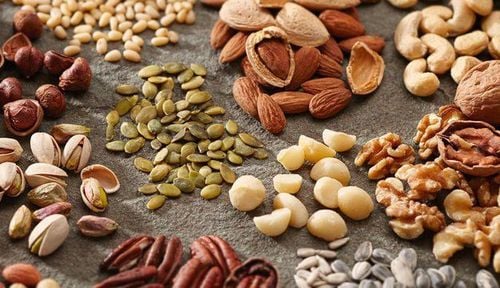
3.4 Milk and dairy products
Milk and dairy products can increase mucus in the nose, causing nasal congestion. The dampness and nasal congestion obstruct the airflow in the sinuses, creating conditions for bacteria to grow, making allergic rhinitis worse.
3.5 Additives
Some food additives can worsen the condition of allergic rhinitis. These additives are found in preservatives, flavorings, and artificial colors.
Common additives that worsen allergic rhinitis include: Monosodium glutamate (MSG), benzaldehyde, FD&C Yellow No. 5 (Yellow #5).
Therefore, processed foods containing a lot of colorings or MSG are also foods that patients should avoid.
4. What should people with allergic rhinitis eat?
Some foods that are good for patients with allergic rhinitis include:
4.1 Fruits and vegetables rich in vitamin C
Patients should strengthen their body's resistance to prevent allergic rhinitis. Among them, supplementing vitamin C is highly effective in strengthening the immune system. Vitamin C is abundant in foods such as bell peppers, cherries, grapefruit, gooseberries, or carrots. Therefore, consuming these foods is very good for people with allergic rhinitis.
In addition, fruits like apples, oranges, or tomatoes are also rich in antioxidants. Through this, patients can effectively fight asthma and allergic rhinitis. Therefore, people with allergic rhinitis should increase their consumption of these foods.
4.2 Foods rich in Omega-3
Fish such as mackerel, sardines, or salmon are very high in Omega-3 fatty acids. This is a good fatty acid that helps prevent inflammatory reactions in the respiratory tract. Therefore, patients should also add fish dishes to their daily menu to help reduce the condition of allergic rhinitis.
4.3 Warm foods
Some warm foods like ginger, garlic, or onion are also very good for the body. These foods are also common spices that contain many antibiotics, helping to effectively prevent allergic rhinitis.
Other warm foods such as turnips, sticky rice, longan, jujube, brown sugar… are also very useful. These foods have the use of promoting the health of the lungs, thereby helping to prevent the disease.
4.4 Herbs with essential oils
Herbs with essential oils such as mint, coriander, parsley… are very good for patients with allergic rhinitis.
In general, maintaining a scientific diet and strictly adhering to the doctor's instructions is an effective measure to help patients with allergic rhinitis overcome this disease.
The above is the information provided by Vinmec for readers, helping everyone to clearly understand the issue of what to avoid and what to eat for people with allergic rhinitis.
To arrange an appointment, please call HOTLINE or make your reservation directly HERE. You may also download the MyVinmec app to schedule appointments faster and manage your reservations more conveniently.







